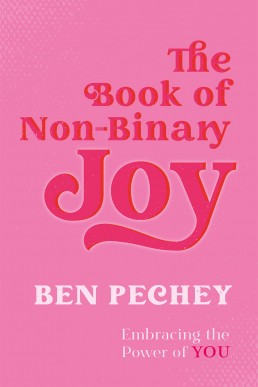
The Book of Non-Binary Joy
'A joy to read' JEFFREY MARSH'I'm so happy this book exists' FREDDY MCCONNELL'Full of wit, fun and w
Disability/Mental Disor., Non-Fiction Daisy Holder 6 18th Jan, 2025
About the Author: Daisy Holder is a researcher, writer and archivist who specialises in disability history. Their work has focused on making disabled people’s stories accessible to the community; online as well as in magazines, podcasts, books and museums. Daisy is a skilled communicator of the past and a passionate advocate of archiving and preservation, having set up Disability History Snapshots and the Covid Disability Archive and worked on numerous projects to raise awareness of disabled people’s history and spread knowledge among the community. Born and raised in the west country of the UK, they can often be found playing social deduction games, crocheting and dressing as a 1990s Children’s TV presenter, usually all at the same time. Persecuted, outlawed, imprisoned, shunned. You might think this refers only to the LGBTQ+ community, but their experience is remarkably closely aligned to the experience of the Disabled community. This book examines the histories of these two movements are they ran alongside each other often intersecting. Both the Disabled and the LGBTQ+ movements have rich and intriguing pasts that date back beyond recorded history. As Holder explores the journey of these movements the journey highlights their shared history through the stories of the people who brought both into modern consciousness. They represent vital landmarks in the little-explored intersections between the two groups’ past and present. Turn-of-the-century Mexican bisexual painter, Frida Kahlo, was Disabled by both polio and injury; Michelangelo turned his artistic talents toward homoerotic poetry to manage his arthritis. The iconic Marsha P Johnson lived with and cared for those with AIDS, and Dr Fryer, the psychiatrist with depression, has been credited with planting the seed that led to the removal of homosexuality from the American diagnostic manual of mental disorders. While many of these events seem small, they shape our Queer and Disability cultures and shared history, to show just how far we’ve come and how far we still have to go.